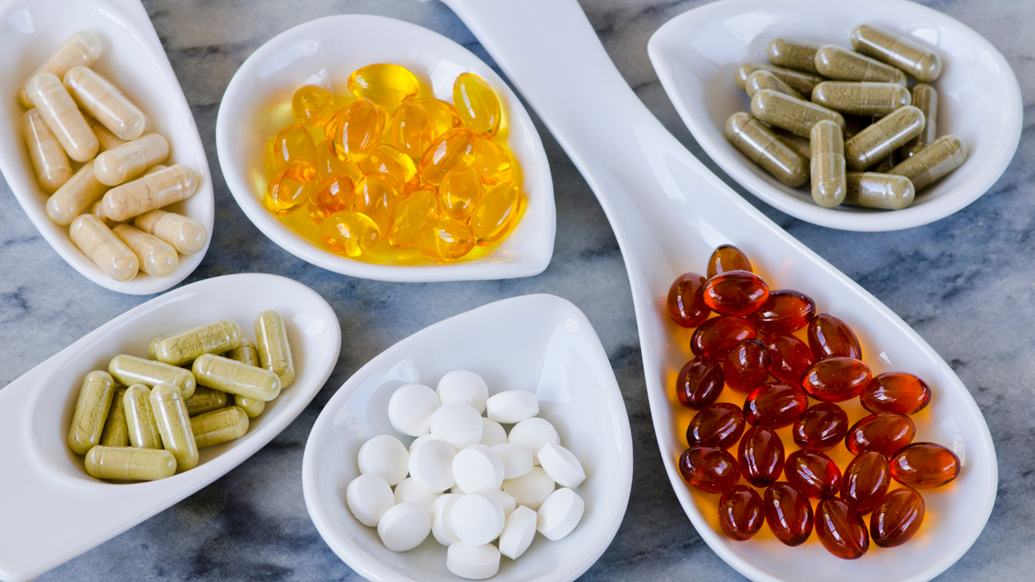Top 10 Legal Muscle Building Pills
Building muscle mass is a common goal for many fitness enthusiasts, athletes, and individuals aiming to improve their physical health and appearance.
While a balanced diet and consistent exercise regimen are foundational to muscle growth, some individuals turn to supplements to potentially enhance their results.
We will provide an overview of ten popular muscle building pills and supplements, discussing their purported benefits, mechanisms of action, and considerations for use.

#1 Creatine Monohydrate
Overview: Creatine is one of the most researched and widely used supplements in the fitness industry. Naturally found in small amounts in certain foods and synthesized in the body, creatine plays a crucial role in the production of adenosine triphosphate (ATP), the primary energy currency of cells.
Mechanism: Supplementing with creatine increases the body’s phosphocreatine stores, allowing for rapid ATP regeneration during high-intensity, short-duration exercises like weightlifting. This can lead to improved performance, increased strength, and, over time, greater muscle mass.
Considerations: Creatine is generally considered safe for most individuals when used as directed. Some may experience water retention or gastrointestinal discomfort. It’s essential to stay hydrated and consult with a healthcare professional before starting supplementation, especially for those with kidney issues.
#2 Branched-Chain Amino Acids (BCAAs)
Overview: BCAAs consist of three essential amino acids: leucine, isoleucine, and valine. These amino acids are vital for muscle protein synthesis and are commonly consumed to reduce muscle soreness and promote recovery.
Mechanism: Leucine, in particular, plays a significant role in activating the mTOR pathway, which is crucial for muscle protein synthesis. By providing these essential amino acids, BCAA supplements may support muscle repair and growth, especially when dietary protein intake is insufficient.
Considerations: While BCAAs can be beneficial, individuals consuming adequate protein through their diet may not see additional benefits from supplementation. It’s also important to note that BCAAs alone do not provide all the essential amino acids required for complete protein synthesis.
#3 Whey Protein
Overview: Whey protein is a high-quality protein derived from milk during the cheese-making process. It’s rich in essential amino acids and is rapidly absorbed, making it a popular choice post-workout.
Mechanism: Consuming whey protein provides the body with the necessary building blocks for muscle repair and growth. Its rapid digestion leads to a quick rise in amino acid levels in the bloodstream, promoting efficient muscle protein synthesis.
Considerations: Individuals with lactose intolerance or dairy allergies should approach whey protein with caution. Alternative protein sources like plant-based proteins are available for those with sensitivities.
#4 Beta-Alanine
Overview: Beta-alanine is a non-essential amino acid that combines with histidine to form carnosine, a dipeptide that acts as a buffer against muscle acidity during high-intensity exercise.
Mechanism: By increasing muscle carnosine levels, beta-alanine helps delay the onset of muscle fatigue during intense physical activity. This can lead to improved performance and the potential for greater muscle gains over time.
Considerations: A common side effect of beta-alanine supplementation is paresthesia, a harmless tingling sensation. Splitting doses or using sustained-release formulations can mitigate this effect.

#5 Beta-Hydroxy Beta-Methylbutyrate (HMB)
Overview: HMB is a metabolite of the amino acid leucine and has been studied for its potential to reduce muscle protein breakdown and promote muscle mass, especially in individuals new to resistance training.
Mechanism: HMB may enhance muscle growth by minimizing protein degradation and supporting recovery processes. It’s particularly noted for its potential anti-catabolic properties.
Considerations: While some studies show promise, the benefits of HMB supplementation may be more pronounced in untrained individuals or those returning from a training hiatus. Its effectiveness in well-trained athletes is still under investigation.
#6 L-Glutamine
Overview: Glutamine is the most abundant amino acid in the human body and plays a vital role in immune function, gut health, and muscle recovery.
Mechanism: During intense exercise, glutamine levels can become depleted, potentially impairing recovery and immune function. Supplementing with L-glutamine may support muscle repair and reduce exercise-induced muscle soreness.
Considerations: While generally safe, the direct impact of glutamine supplementation on muscle growth is still a topic of research. Individuals should consider their overall protein intake and specific training demands when evaluating its use.
#7 Nitric Oxide Boosters (e.g., L-Arginine, L-Citrulline)
Overview: Nitric oxide (NO) is a molecule that promotes vasodilation, increasing blood flow to muscles during exercise. Supplements like L-arginine and L-citrulline are precursors to NO production.
Mechanism: Enhanced blood flow can improve nutrient and oxygen delivery to working muscles, potentially enhancing performance and recovery. This vasodilation effect is often associated with the “muscle pump” experienced during workouts.
Considerations: The efficacy of NO boosters varies among individuals. Some may experience noticeable benefits, while others may not. It’s essential to monitor individual responses and consult with a healthcare professional if considering supplementation.
#8 Testosterone Boosters (e.g., Tribulus Terrestris, Fenugreek Extract)
Overview: Testosterone boosters are supplements aimed at increasing the body’s natural testosterone levels, a hormone integral to muscle growth, strength, and overall male health.
Mechanism: Ingredients like Tribulus Terrestris and fenugreek extract are believed to stimulate endogenous testosterone production, potentially enhancing muscle mass and strength.
Considerations: The effectiveness of natural testosterone boosters is mixed, with some studies showing minimal impact on testosterone levels. Individuals should approach these supplements cautiously and consult with a healthcare provider, especially considering potential hormonal effects.

#9 ZMA (Zinc Monomethionine Aspartate, Magnesium Aspartate, and Vitamin B6)
Overview: ZMA is a combination of zinc, magnesium, and vitamin B6, marketed to support muscle recovery, improve sleep quality, and boost testosterone levels.
Mechanism: Zinc and magnesium are essential minerals involved in numerous bodily functions, including muscle contraction, protein synthesis, and hormonal regulation. Adequate intake may support recovery and overall performance.
Considerations: While ZMA can help address mineral deficiencies, its direct impact on muscle growth and testosterone levels in individuals with adequate nutrient intake is uncertain. Ensuring a balanced diet is crucial before considering supplementation.
#10 Omega-3 Fatty Acids (Fish Oil Supplements)
Overview: Omega-3 fatty acids, commonly found in fish oil supplements, are essential fats known for their anti-inflammatory properties and numerous health benefits.
Mechanism: By reducing inflammation, omega-3’s may aid in muscle recovery and reduce soreness after intense exercise. They also play a role in cell membrane integrity and overall cardiovascular health.
Considerations: Omega-3 supplements are generally safe but can interact with blood-thinning medications. It’s advisable to consult with a healthcare professional before starting supplementation, especially for those with medical conditions or those taking other medications.
Key Considerations When Using Muscle Building Pills / Supplements
While supplements can support muscle growth and recovery, they should complement, not replace, a well-structured training program and balanced diet. Here are some essential considerations:
- Individual Needs: Assess personal goals, dietary habits, and training intensity to determine if supplementation is necessary



